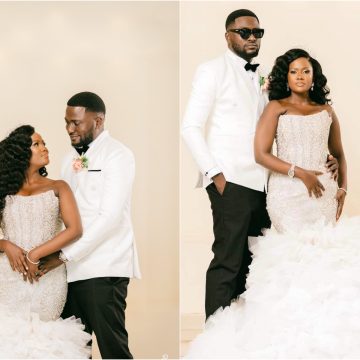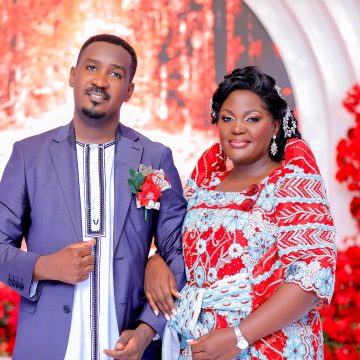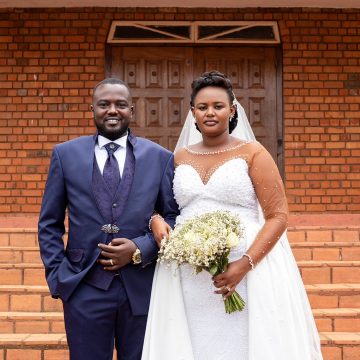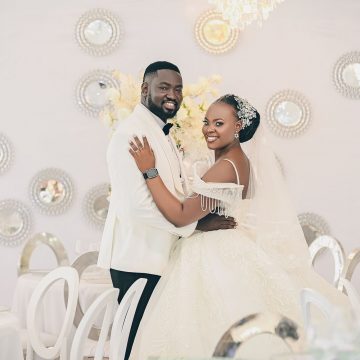Maybe you're thinking about having s3x for the first time. Or maybe you're already having s3x, but are considering other forms of birth control and protection besides condoms. Or maybe your doctor recommended you look into the pill to help regulate your period or even clear up your skin. The pill has perks, for sure — but you might be worried your parents won't be on board, or you might have heard some girls say the pill makes them "crazy." And then there's your friend's cousin's sorority sister who was on the pill and still got pregnant…
Going on the pill is a big decision, and there's no right or wrong solution that works for everyone. Here, Dr. Vanessa Cullins, vice president of external medical affairs at Planned Parenthood, and Dr. Jennifer Ashton, ABC News chief women's health correspondent and ob-gyn, answer your biggest, most burning questions about the pill.
1. Do you have to let your parents know you're going on the pill?
If you can talk to your parents (or even just your mom) about going on the pill, you should. You talk to them about getting your annual flu shot and dealing with your migraines — this is just as important. Your parents probably want to weigh in on the decision, and if you're on their health insurance, they may find out anyway. "Your parents don't technically have to know," Dr. Cullins says. "However, if you're on your parents' health insurance and you use their health insurance to go on the pill, then your parents are more than likely to know." As uncomfortable as the convo may be, your parents will probably appreciate that you came to them first rather than going behind their back, and it's a good sign that you're mature enough to handle taking the pill.
If you're absolutely dead set against looping in your parents, there is a way to still get the pill. Dr. Cullins points out that you can visit your local Planned Parenthood clinic. "In most cases, you can go on the pill and you won't have to pay anything," she says. "It's income-based, so if you're an adolescent without income, then you're not going to have to pay." For an exact price, call ahead to see how what (if anything) your local clinic will charge you.
2. Do you need a prescription to get the pill? If so, who needs to write it?
Unless you choose to get the pill at Planned Parenthood, you need a prescription from a doctor. Any licensed medical practitioner can write your prescription as long as they feel comfortable, Dr. Cullins says.
To get a prescription, make an appointment with your regular doctor (whether that's a pediatrician or a primary care physician for adults) or your gynecologist, if you have one. Gynecologists, by the way, are doctors who specialize in the female reproductive system. Dr. Cullins recommends you make your first gyno appointment at age 15, even if you're totally healthy and aren't sexually active.
3. When can you start taking the pill?
The majority of doctors will not prescribe the pill to a girl who hasn't yet started her period. "You only need the pill if you're able to become pregnant, and you're only able to become pregnant after you've reached puberty," Dr. Cullins says.
Once you've begun menstruating, you can ask your doctor for a prescription for the pill regardless of whether you're sexually active. "More than half of my teenage patients on the pill are on the pill for non-contraceptive reasons," says Dr. Ashton. In addition to contraceptive purposes, a doctor might prescribe you the pill to help regulate your periods or improve your skin.
4. Does the pill make your period more regular?
There's nothing more frustrating than getting your period by surprise when you don't have a tampon or pad on hand. And if you're sexually active, it can be terribly stressful to wait days or weeks for your period to come, especially if you've had unprotected sex. When you're on the pill, your body will adjust over time so your period will eventually arrive like clockwork. You'll eventually be able to predict the exact day on which you'll start to bleed, so you'll always be prepared.
One important FYI: It's not like you can pop a single pill and automatically have regular periods. "It usually takes a little bit of time — weeks, months," Dr. Cullins explains. "It might even take over a year or so before you start having perfectly regular periods." That said, not every irregular period needs to be set straight by the pill. If you started menstruating in the past two years, it's 100 percent normal to have an unpredictable cycle, so definitely talk to your doctor about whether the pill might be right for you.

5. Does the pill make you gain weight?
You might have heard horror stories about girls who gain tons of weight, but Dr. Ashton says that's an exaggeration. "There are no calories in the pill," she jokes. "The pill contains exactly the same hormones that your body naturally makes, just in different amounts." On average, you can expect to gain between 1 and 3 pounds. Key word: average. Some people gain a little more, and some gain no weight at all.
6. Does it make your boobs bigger?
This is sort of an old-fashioned myth. When the pill first was approved by the FDA in the 1960s, it was packed with estrogen that really did increase your bust size, Dr. Cullins says. Today's version of the pill features lower doses of estrogen, which means it's safer (yay!) and has slightly different side effects. Since the modern pill doesn't directly or reliably lead to bigger boobs, it's not worth going on birth control just for the possible boost in cup size. That's what push-up bras are for!
7. Does it clear up your skin?
Oftentimes, yes! In fact, the pill can be such a boss at banishing zits that doctors often prescribe it to girls who struggle with acne. The pill gives your body extra estrogen, which suppresses androgen, the hormone that causes extra oil production. More estrogen = fewer pimples, in some cases. Not every version of the pill will necessarily clear your skin though. The FDA has approved three types of the pill for acne treatment — Ortho Tri-Cyclen, Estrostep, and YAZ. (Other types of the pill might improve your acne, but haven't been approved by the FDA specifically for this purpose.) If better skin is your primary reason for going on the pill, make sure you communicate that to your doctor, and ask for a version that contains both estrogen and progestin.
Keep in mind: Even the right pill is not necessarily a cure-all for acne. Some girls find that it clears their skin completely, while others find it simply reduces the number or intensity of pimples. How can you know which camp you'll fall into? "It depends on how bad your acne is," Dr. Cullins explains. "Different people have different degrees." Also, don't freak out if the pill doesn't give you perfect skin overnight. Like any acne medication, it can take a few months for acne to improve. And if your skin gets temporarily worse, that's par for the course too. "There can be an initial flare before things improve," Dr. Ashton says. "Sometimes things can get a little worse before they get better. It's usually just a matter of finding the right pill for the right person and giving things some time."

8. Will the pill cause mood swings?
You might have heard that the pill can make people feel not quite like themselves — like maybe there's a rain cloud over their heads, or they're normal one minute and depressed the next. While there's some anecdotal evidence, studies have repeatedly shown that the pill actually doesn't mess with your moods. "The pill is no more likely to cause any problems with depression or anxiety than Motrin or Aleve," Dr. Cullins says. "Mood swings are just a part of life. Studies show that mood swings aren't any more common for people on the pill."
That said, it's important to find a method of birth control that keeps you comfortable. If one version of the pill gives you weird side effects (even if you think it's just a coincidence), there's no harm in talking to your doctor about switching to a different version.
9. How soon after starting the pill is it safe to have sex without a condom?
If you're sexually active, you absolutely need to use a back-up form of birth control (like condoms) in addition to the pill for the first several days. The exact length depends on where you are in your menstrual cycle when you begin taking it. "If you start the pill within one to five days of beginning your menstrual cycle (starting to bleed), then you're really protected right away," Dr. Cullins says. That's because the pill takes at least seven days to kick in and become effective. If you did not start taking the pill within one to five days of beginning your period, you should definitely use condoms for the first seven days of your pill pack.
No matter where you are in your cycle when you start taking the pill, though, it's a smart idea to continue using condoms at least for the first full month, if not indefinitely. Why?
- The pill doesn't protect against sexually transmitted infections, so unless you and your partner have both tested negative for STIs, you should still be using condoms, anyway.
- The best way to prevent pregnancy is to use an effective birth control method (like the pill) plus a condom. That way, you're protected from STIs and have two methods of protection against pregnancy.
- Taking the pill every day is just like building any other habit — it takes awhile to get into the swing of it. The last thing you want to do is forget it for a day or two and not have a back-up method of birth control in place.
10. How important is it to take the pill at the exact same time every day?
The pill is an incredibly effective form of birth control if (and only if) taken correctly. If taken at the same time every day, less than 1 out of 100 women will get pregnant each year — it's more than 99 percent effective. But when it isn't taken at the same time every day, chances of pregnancy rocket up to 9 out of 100 women a year. "You can be off an hour or two, but you need to have a constant level of hormones for at least 24 hours, and that constant level of hormone is usually only effective for about 24 hours," Dr. Cullins says. This is especially important if you're taking a low-estrogen, progestin-only, or mini version of the pill, all of which are more sensitive.
Try taking the pill in conjunction with another activity you do at the same time every day, like brushing your teeth or eating dinner to help you remember. Still worried about forgetting? Set a daily alarm on your phone.
11. What should you do if you miss the pill?
It depends on how many hours or days have gone by since your last dose. Here's what Dr. Cullins recommends:
If you missed taking the pill by a few hours and you're sexually active: Take the pill as soon as you remember and take the next pill on time.
If you missed taking the pill by a day and you're sexually active: Take the pill that you've missed and the pill you're supposed to take that day at the same time. Then use a back-up form of birth control (like condoms) for at least the next five days. If you forget to use a condom, you can get Plan B (an emergency contraceptive pill) over-the-counter at a pharmacy.
If you missed taking the pill and are not sexually active: Do not take multiple pills. Skip the ones you missed and continue from there. You might experience some intermittent bleeding or spotting between your periods for the next month or two. If you do decide to become sexually active, use a condom for at least the next five days.
12. Is it safe to take the pill alongside other medications?
For young women who are generally healthy, Dr. Cullins says this is fine. "The only medicines that may make the pill less effective are the antibiotic rifampin (other antibiotics do not affect the pill), an antifungal medicine called griseofulvin, and certain HIV and anti-seizure medicines," she says. "The supplement St. John's Wort also can make it less effective." Still, it's a good idea to alert your doctor to the fact you're on the pill before beginning any new medications — just in case!
13. Is it safe to take the pill when drinking alcohol?
"We're not trying to encourage people to drink alcohol, but it doesn't affect the ability of the pill to prevent pregnancy," Dr. Cullins says. Of course, be aware that you're likely to have more difficulty remembering to take the pill on time if you're drinking.
























